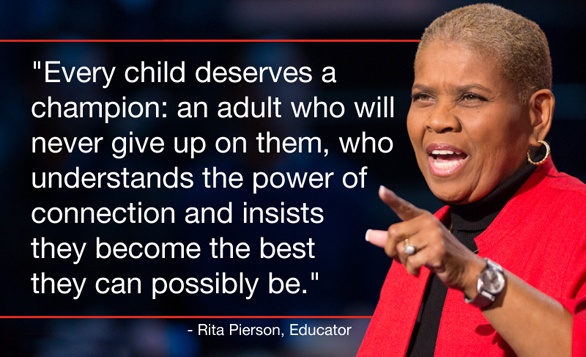Kids don’t learn from people they don’t like. What about adults?
As a champion in the UN’s EFA (Education for All) movement, when I heard Rita Pierson’s Ted Talk “Every Child Needs A Champion” I was moved by her candid honesty, as well as her humorous depiction of how kids learn. It was also great to hear her stories of inspiration and being the “champion” that kids need. Listening to her talk, however, it occurred to me that the same basic concept applied to all people—not just kids.
Whether at school with young people or in the workplace with adults, one truth that is universal is that people learn better from those they like. Although it is possible to learn from someone you dislike, the intrinsic motivation to learn when being taught by someone you can relate to is exponentially higher—and motivation is one of the foundational building blocks of learning. When we are motivated by a friendship or perceived friendship, we are much more likely to apply ourselves in our studies or skills development. This is partly because of a desire to please the people we like, and partly because we are more likely to hold the opinions and lessons of our friends in high regard.
As adults, we might often think that our learning days are behind us, but the truth is that we have daily opportunities to improve ourselves through learning, whether it be at the workplace, at home, or in a wide range of other settings. By embracing these opportunities, we are actively evolving as individuals, and by embracing change and growth keep our minds sharp and our perspectives fresh. Likewise, we often are in the position to impart knowledge and skills on others. In this case, it is vital to remember that learning is not just a product of facts and figures. Instead, it is a process that involves relationship and interpersonal discourse. This is why it is important that we create a conducive learning environment by developing positive relationships with those around us.
Tags: learning, rita pierson, TED Talks, Video
